Safeguarding gender equality
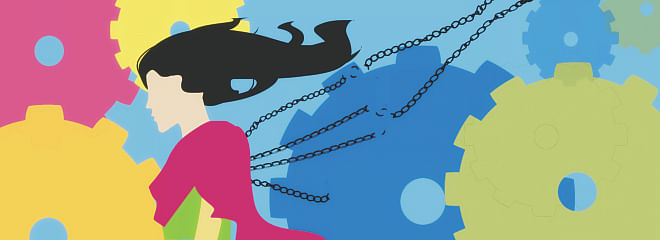
Women Empowerment and Gender Equity is a core development objective in its own right. Empowering women as economic, political and social actors can change policy choices and make institutions more representative of a range of voices. Women's empowerment educates and empowers women with the skills and confidence necessary to get a job, create a healthy lifestyle and regain a home for themselves and their children. Empowering women to participate fully in economic life across all sectors is essential to build stronger economies, achieve internationally agreed goals for development and sustainability and improve the quality of life for women, men and their communities.
Empowerment evolves when will-power rises. Since the development of women and children is prerequisite to national development, programmes to empower and establish rights of women and children by mainstreaming them in the overall development process of the country has been undertaken with the objective to ensure empowerment, stop violence, prevent trafficking, ensure safety in workplaces and involve women in socio-economic activities. Initiatives to ensure women's economic empowerment through skill development by providing extensive training, creating job opportunities, ensuring participation in the labour market and providing support to small and medium (SME) entrepreneurs have been developed.
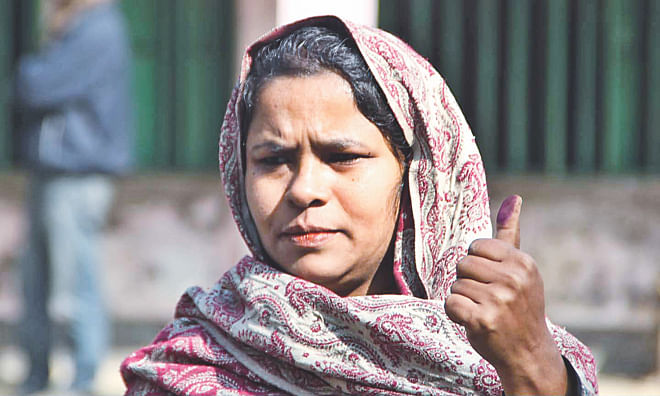
The private sector is a key partner in efforts to advance gender equality and empower women. The empowerment principles emphasize 1) Establishing high-level corporate leadership for gender equality 2) Treat all women fairly at work –respect and support human rights and non-discrimination 3) Ensure health, safety and well-being of all women workers 4) Promote education, training and professional development for women 5) Implement enterprise development, supply chain and marketing practices that empower women 6) Promote equality through community initiatives and advocacy 7) Measure and publicly report on progress to achieve gender equality.
UNDP co-ordinates global and national efforts to integrate gender equality and women's empowerment into poverty reduction, democratic governance, crisis prevention and recovery, environment and sustainable development. Through its global network, it works to ensure that women have a real voice in all governance institutions, so they can participate equally with men in public dialogue and decision-making and also influence the decisions that will determine the future of their families and countries.
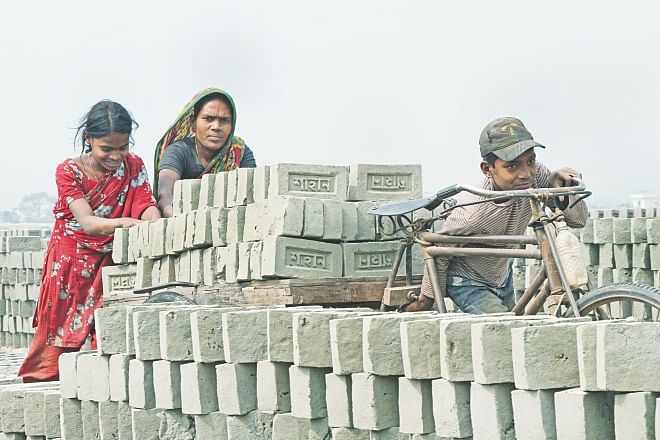
Women's empowerment through gender equality matters in its own rights, because the ability to live the life of one's own choosing and be spared from absolute deprivation is a basic human right, to be enjoyed by everyone, whether one is male or female. Economic development is not enough to shrink all gender disparities – corrective policies that focus on persisting gender gaps are essential.
since the 1960s, concerns about women's empowerment, gender equality and systematic discrimination against women have gained momentum internationally, leading to both the drafting of a number of self-standing international treaties and conventions and the inclusion of non-discriminatory clauses in several broader-purpose economic agreements, which have fostered legislative action toward higher gender equality around the world.The most prominent among the international treaties is the Convention on the Elimination of All Forms of Discrimination against Women (CEDAW), adopted in 1979 by the UN General Assembly. As of August 2011, 187 countries (of a total of 193 UNmember nations) were parties to the Convention. The ILO conventions C.100 (equal remuneration for equal work) and C.111 (elimination of discrimination on employment and occupation) have also been widely ratified around the world.
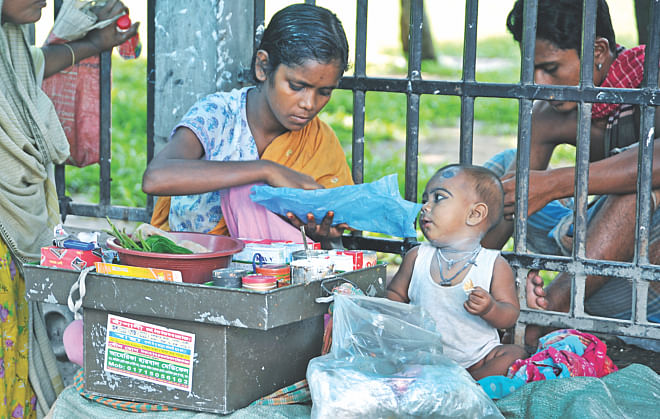
Women's Empowerment Principles of UN area set of Principles for business offering guidance on how to empower women in the workplace, marketplace and community. They are the result of a collaboration between the United Nations Entity for Gender Equality and the Empowerment of Women (UN Women) and the United Nations Global Compact.
Empowerment of women in Bangladesh has been intensified by Ministry of Women and Children Affairs (MOWCA) through Department of Women's Affairs, JatiyaMohilaSangstha, NGOs and related women's organizations by means of programmes and projects. These include the following:
Social Safety-net programme “Fund of Lactating Working Mother in Urban Areas” for the poor working mothers and the children's nutritional development was undertaken for mother and child health and nutrition. From 2010 till the present 77625 beneficiaries, received allowances for 2 years while 64 NGOs/CBOs and BGMEA/BKMEA provided training to those who were recruited in garment industries.
Vulnerable Group Development (VGD) Programme was developed for food security and empowerment of ultra poor women of rural areas. Training on awareness building, self-employment and income generation activities are provided. 7,50,000 VGD women have received rice and flour assisting their health and working capacities for earning.
Vulnerable Group Development Programme for Ultra Poor (VGDUP) implemented in 8 Districts and 36 Upazillas provided 80,000 women Tk 400 per month along with different income generating training and productive assets of Tk 7500 after training.
Food and Livelihood Security Programme (FLS) of ultra-poor and marginal farmers in 22 Upazillas of Natore, Naogaon and Chapainawabganj received training for self-employment. Each ultra-poor women beneficiary was given Tk 14,500 and each marginal farmer Tk 10,500 for income generation. Credit Programme for Poverty Reduction, Oppressed and Destitute Women and Children Fund, Training Activities of Women Training Centre at Districts and 136 Upazillas by Department of Women's Affairs have assisted thousands of women towards economic empowerment through income generation.
Computer Training, Special Modern Trade Training, Skill Development, Development Programme for Urban Marginalized Women, Launching of “Joyeeta” women's sale centre, Promoting Women Entrepreneurship for Economic Empowerment Project by JatiyaMohilaSangstha have created economic empowerment through entrepreneurship development. 7750 women entrepreneurs were given support for increasing capacity, 5500 unemployed women given vocational training for capacity building, 2250 given management and professional skill training in 6 divisions. “Shonar Tori” established as Women's Sales centre.
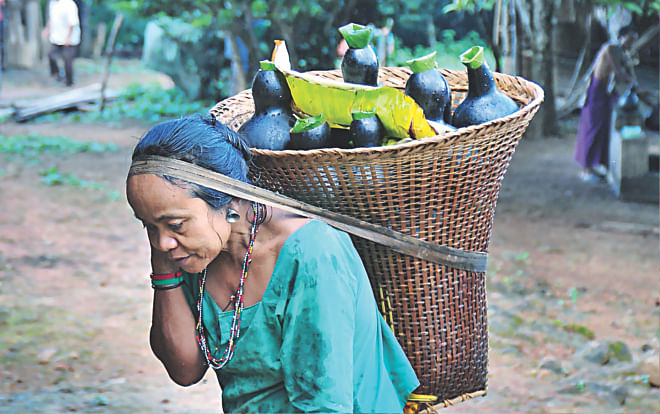
Formulation of Laws and Policies as the Domestic Violence (Prevention and Protection) Act 2010, Domestic Violence (Prevention and Protection) Rules 2013, National Women Development Policy 2011, National Children Policy 2011, Gender Responsive Budgeting and extension of Maternity Leave to six months by the government has created awareness of women's empowerment, initiating prevention of discrimination against women.
The lives of girls and women in Bangladesh have changed dramatically over the past quarter century as more girls and women are literate than ever before. E-service Activity and Digitalization has been activated in 6 divisions, 51 districts. Department of Women Affairs, JatiyoMohilaSangstha and Shishu Academy have their own web-sites, contributing towards the information sharing for women's development.
Empowerment has been activated through government and NGO
support especially with regard to gender- based violence. Poverty, cultural norms and beliefs, non-implementation of laws, women's economic dependency and unequal power relationships are the major contributing factors of gender- based violence. Early and forced marriage continues to be an impediment to not only the economic, legal, health and social status of women and girls but to the society as a whole. This also affects the empowerment and participation of women and children in decision making processeswhich consequently challenge sustainable development and economic growth. Despite great efforts, majority of victims do not have access to justice and other servicesdue to negligence in raising societal awareness. People at large are not aware about the enacted laws, services,prescribed mandates and legal options. DMP Commissioner Benazir Ahmed said a total of 24,000 women and children became victims of violence in the last 5 years.(Daily Sun 11.2.14)
“Prevention of Violence Against Women and Children” activities have been initiated by MOWCA which runs the Central Cell to Prevent Violence Against Women and Children, to foster the opportunities and render all kinds of support to women and children, who have been victims of torture, ensure co-ordination of activities for preventing violence and monitoring of those programmes. District Committees for Prevention of Violence against Women, Department of Women Affairs, JatiyoMohilaSangstha, Police Headquarters, MSP-VAW project and various non-governmental organizations co-ordinate with the Cell, and Inter-Ministerial Co-ordination Committee, thereby assisting towards the security of women for their empowerment.
At the divisional level, under the Women Support Programme of Department of Women Affairs, Prevention Cell for Violence Against Women and Temporary Shelter Homes for the tortured women have been set up in order to render support to vulnerable, destitute women who have been the victim of torture. From 2009 to 2012 of the 4629 complains, 4261 were settled, while 2482 women and 2279 children stayed at shelter homes. During trial, protection and security are provided to women and children by keeping them at the 100 bed safe custody at Kashimpur, Gazipur. Till now 800 women, children and adolescents have been provided safe custody and legal facilities.
A National Centre on Gender- based Violence has been established in the Department of Women's Affairs. The Multi-Sectoral Project for Violence Against Women (MSP-VAW) under MOWCA is operating in seven Divisions, located in the Medical College Hospitals of Dhaka, Chittagong, Rajshahi, Sylhet, Khulna, Barisal, Rangpur and District level Hospital at Faridpur. Eight One-Stop Crisis Centres (OCCs) have been set up in hospitals of seven divisional towns and at Faridpur under MSP-VAW projects which offered health Services to over 20,000 women and child victims along with Legal aid, police assistance, DNA Examination, psychological counseling, shelter and assistance for rehabilitation in society. The National Trauma Counseling Centre, provided psycho-social counseling support, first National Forensic DNA Profiling Laboratory, with modern and advanced technological facilities, along with DNA Screening Laboratories conducted 2148 tests till April 2013for tracking down perpetrators of various heinous and despicable crimes, providing support to law enforcing agencies. National Helpline Centre along with other services have assisted in regaining the moral strength and will-power of victims, to face life again with strength, determination and authority even after being humiliated with criminal offence.
26654 women have been provided Social Awareness Programme to Prevent Women and Children Trafficking and 1478 meetings were conducted to prevent dowry and child marriage. Empowerment through protection has enforced women's security.
Bangladesh has experienced large decreases in excess girl mortality during the past two decades by improving access to clean water, sanitation and waste disposal services, reduction in diarrhea and other infectious diseases. Reduction in maternal mortality was achieved through improved maternal health care. The forceful voice of women within their household reflects the combined influence of their increased and upgraded access to economic opportunities, the nature of their social norms, the legal framework and the enforcement of laws (World Development Report 2012, World Bank).
Development has closed gender gaps in educational enrollment, life expectancy, labour force participation, though egregious gaps still persist, such as unequal access to Economic opportunities, differences in voice in households and in society.
Income growth by itself does not deliver greater gender equality on all fronts.Lack of empowerment persists where women and girls face disadvantages. For poor women, gender gaps remain and disparities are even larger when poverty combines with other forms of exclusion, such as remoteness, ethnicity and disability.
Decline in fertility that has come with higher incomes helped lower the number of deaths associated with maternal mortality. Bearing fewer children has given women more time to invest in acquiring human capital and to participate in the economy. Forward-looking parents responded to expanded employment opportunities by increasing their educational investments in their daughters.
In Bangladesh, women's economic empowerment and greater control over resources also increased investments in children's health, education and nutrition, boosting future economic growth. MOWCA through its activities from January 2009 to 2013 showedthat increasing the share of household income which women control, either through their own earnings or cash transfers, changes spending in customs that benefit children.
In 64 Women Training Centres (WTC) in 64 districts under Department of Women's Affairs (DWA), modern training through WTC are provided to poor and destitute women on different trades. In136 Upazilla WTC 38,000 women have received skills to earn thereby supporting their own families through their income. By providing Information Technology and Computer Training Courses for educated unemployed women and to increase skill in workplace for economic development JatiyaMahilaSangstha has been implementing programmes. Besides Cyber Cafés have been started in 10 districts covering till May 2013, 14,992 women have received basic computer and IT training, paving the way towards women's empowerment.
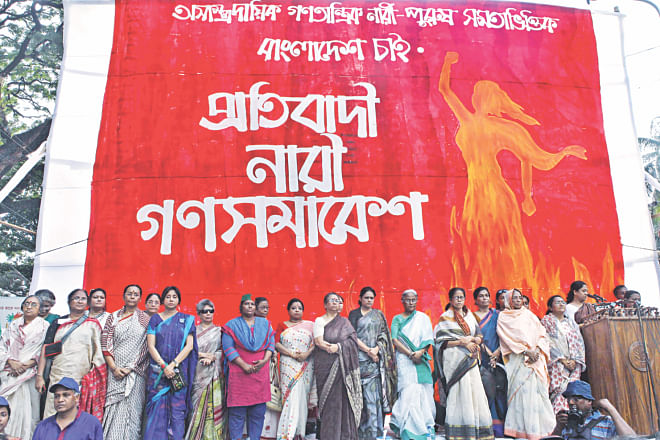
Credit programmes for poverty reduction has been successful by making rural destitute women self-reliant through credits provided for self-employment, in 473 Upazillas of 64 districts.
In manufacturing, service activities and exports, female participation was faster than in other sectors of economic development. Through the spread of cell phones and Internet, more women have gained access to information. Introduction of Digital Bangladesh, Internet access and use have opened new ventures for the women in various sectors.
Trade openness and spread of information and communication technologies have expanded economic opportunities. Demand for female workers in the export and ICT-enabled sectors has increased and gender distribution of employment across sectors has changed. Women have moved out of agriculture and into manufacturing and particularly services.Feminization of employment appears to have grown because higher female employment in exports has been accompanied by wage gains. Micro-credit has helped women's economic attainment, bringing financial stability to families.
Women now make up over 40 percent of the global labour force, the impact of which also falls in Bangladesh, both as local and also as migrant workers. Migrant Women workers have increased from 4% to 13% in the last 5 years. AmartyaSen claims that female participation in foreign labour markets is 57% for Bangladesh and only 29% for India,
providing a valuable scenario for the contribution of Bangladeshi migrant female workers abroad. Industries with high shares of female employment tend to be more labour intensive than those with low shares and to account for most export-related employment. Of the 42 lac RMG workers, 80% are women (approximately 33,50,000) leading Bangladesh to the 2nd position in garments export.
There is growing international pressure for countries to grant and enforce formal rights for women. International action in this area has translated into agreements sponsored by international organizations, primarily the International Labour Organization (ILO) and the United Nations (UN).Participation in CEDAW has improved women's literacy levels, labour force participation rates and parliamentary representation – and in some cases has reduced absolute gender inequalities though legal reform, to ensure full equality for women.
In Bangladesh, no more do restrictions exist in female career formation in any field they desire. Women's empowerment through professional attainments is no more limited. Female political participation has been enhanced with increase in a) women ministers in government b) elected women MPs through direct election c) members in reserved seats for women in parliament d) women's election consciousness and voting participation. Increase in women's employment in government, non-governmental offices and private companies, many securing high and top-most positions, have identified women's capability and competency focusing empowerment through qualifications. Women have ventured in professions held only by men in the past. Today they have excelled as scientists, economists, technicians and entered professions as beauticians, fashion designers, contractors, and flying airlines as pilots. As law enforcing officials, women hold responsibilities in army, navy, air force, police, RAB, CID contributing towards national, social and female security. Men's prejudice and women's adjustment have been overcome with changing social order.
Today in Bangladesh, Women's empowerment and gender equality is focused not only as human rights but also as pathway to achieving the Millennium Development Goals (MDG) and sustainable development.
Educated women have taken up professions and are contributing towards their respective sectors with sincerity and excellent accomplishments. As teachers they are educating and guiding the younger generation towards fulfilling their duties and preparing them to become the future leaders of tomorrow. In the Health sector, women as doctors and nurses are contributing their responsibilities in providing the required treatment of the ailing. As lawyers, women have proved their legal deliberations and also assisted convicted women with their legal services. Women Engineers are working along with their male counterparts in the construction of buildings, highways. As Architects women have advanced the creativity of designing modern, sophisticated architectural designs. Cultural attainments have excelled as creative artists in the field of painting, songs, dances, films, drama etc.
With all the positive and marvelous achievements women have gained in life it is humiliating to note that the worst degrading situation of women exists in their homes as reported by Bangladesh Bureau of Statistics, (BBS).This survey revealed that 87% women faced various forms of violence by their husbands, amongst which 81.6% was mental, 53.2% economic issues, 36.5% sex related, and 64.6% physical torture. Unfortunately even in the last one year 77% women faced similar forms of violence and the worst was the forced sexual attempts by the husbands. Eve Teasing, Child Marriage is on the rise along with rape and sexual assaults both on women and also on girl children. Forced sex on girls aged 5 to 9 years was reported as 1.7%, 10 to 14 years 41.8%, 15 to 19 years 34.3 %, women aged 20 to 24 years 9.9% and 25 to 29 years 4.9%. It was found that 87.7% women faced violence at husbands' house while 16.2% faced at workplace.(ProthomAlo 23.1.14).
Many untoward rape incidents have been faced by RMG workers, and other industrial units, especially during overtime duties. Lack of proper women's toilets, insecurity at workplace, improper lighting and lack of protective measures while returning home cause the indulgence of physical assault on young female workers.
Research institutions report of 12% to 16% increase in violence against women in Bangladesh. The increase in violence is identified but though the issue has reached the national level, yet no steps have been taken to combat violence or to bring the culprits to punishment. 8.1% women victims cannot take legal actions for fear of their husbands, 40.1% feel that no result will come out of their attempts through legal action, 20.9% women keep silent lest people hear the news of their tortures through violence, and also in order to hide the news, for the sake of the reputation of their children. 16.5% victims keep silent for their own prestige trying to maintain their good image in society and also for the preservation of the status and respect of their families.
AmartyaSen claimed that education, health and economic development in Bangladesh was possible due to the excellent attainments through women's empowerment and progress in Bangladesh. Yet today, violence against women is not only a gender issue but also a disgraceful matter of human rights violation. Women feel unsecured at home, on streets, education institutions and even with law enforcing agencies. (Salma Khan ProthomAlo 28.1.14).
Child Marriage has increased and so has violence against children, with forced prostitution, abduction, rape and incidences of eve teasing along with its repercussions. Similar has been the increase in violence against women's. Police Headquarters mention that the total cases of violence against women reported in 2012 was 1,84,422, while it was 12,954 in 2001(NariPakkho).
BBS report that 85% women have no independence to earn by themselves and even if they earn 24% have no control over their income, especially in the rural areas. Surveys reveal that men are the main source of income in 92%families, while only 2.2% families have females as main income earners. Very few husbands give independence to their wives as income earners. Of them 93.19% don't appreciate the issue of income for their wives.
Women don't get their Inheritance as provided to them at all places. Many families don't hesitate to inflict physical torture on the family women, the pregnant don't get the desired food, tolerance of sudden household accidents is dealt with harshness. Aged women are sent to old homes, when sons find it hard to look after their old mothers.
Dowry exists as a great hindrance and burden to happy conjugal lives, as one-third women are married through dowry demands by husband. The Muslim law of providing “DenMohar” (Bride Price) is not practiced by more than 40% husbands. (ProthomAlo 24.1.14). BBS survey indicated that ownership of land is 81% for men and 19% for women. Ownership of houses is 86% for men and 14% for women. Women in Bangladesh still earn lesser wages than men for the same work.
Women's empowerment has been inspired by changing situations. Though most of the places of Bangladesh, still adorn the cultures of traditions and heredity in family lives, yet the impacts of modernization cannot be excluded as these have engrossed the younger generations towards a promising future. With the introduction of modern facilities to the remotest areas, women's empowerment has grown with the time and the opportunities provided both by the government and also the private sector.
Modern Bangladesh has developed changing family patterns, transformed attitudes, revolutionized cultural norms, altered behavioral patterns, and initiated relationship arrangements. Divorce rates have increased, while urban working women's preference for individual living seems to have gained with the increase in women's career formation. Live together attempts by unmarried couples have grown among modern educated classes, where the discomfort and distresses of prejudice has faded out with the impacts of modernization. Growing culture of western influence has increased with the impacts of the media, internet and education abroad. Friendship styles, relationships related bonds and activities have changed with education, new opportunities and challenging prospects. Many a family of modern cities live lives being inspired, encouraged and instigated by foreign culture.
It is commendable that recognition of Women's Empowerment in Bangladesh has been highlighted internationally, since Prime Minister Sheikh Hasina has received gold medal from Dauphune University of France for progress and success in women empowerment in Bangladesh. International recognition in development of women and child health was achieved as Prime Minister received the Millennium Development Goals (MGDs) award for Bangladesh's outstanding achievement in reduction of child mortality. She has been awarded the South South Award in the banner of ICT (Information Communication Technology) for the use of information technology for the development of health of women and children.
Greater gender equality can enhance productivity, improve development outcomes for the next generation and make institutions more representative.Improving access to economic opportunities for women, increasing women's voice and agency in the household and in society, improving women's endowments, opportunities and agency can shape more positive outcomes for the next generation. With the existing female leadership at the highest level of the country, it is important to reach similar situations at all levels. Women's empowerment is sure to create a prosperous Bangladesh, paving the way for the future generations to stride forward hand in hand towards a glorious tomorrow.
The author is professor, Department of Sociology, Dhaka University and President, Bangladesh Forum for Rights of Women & Children.

 For all latest news, follow The Daily Star's Google News channel.
For all latest news, follow The Daily Star's Google News channel. 



Comments